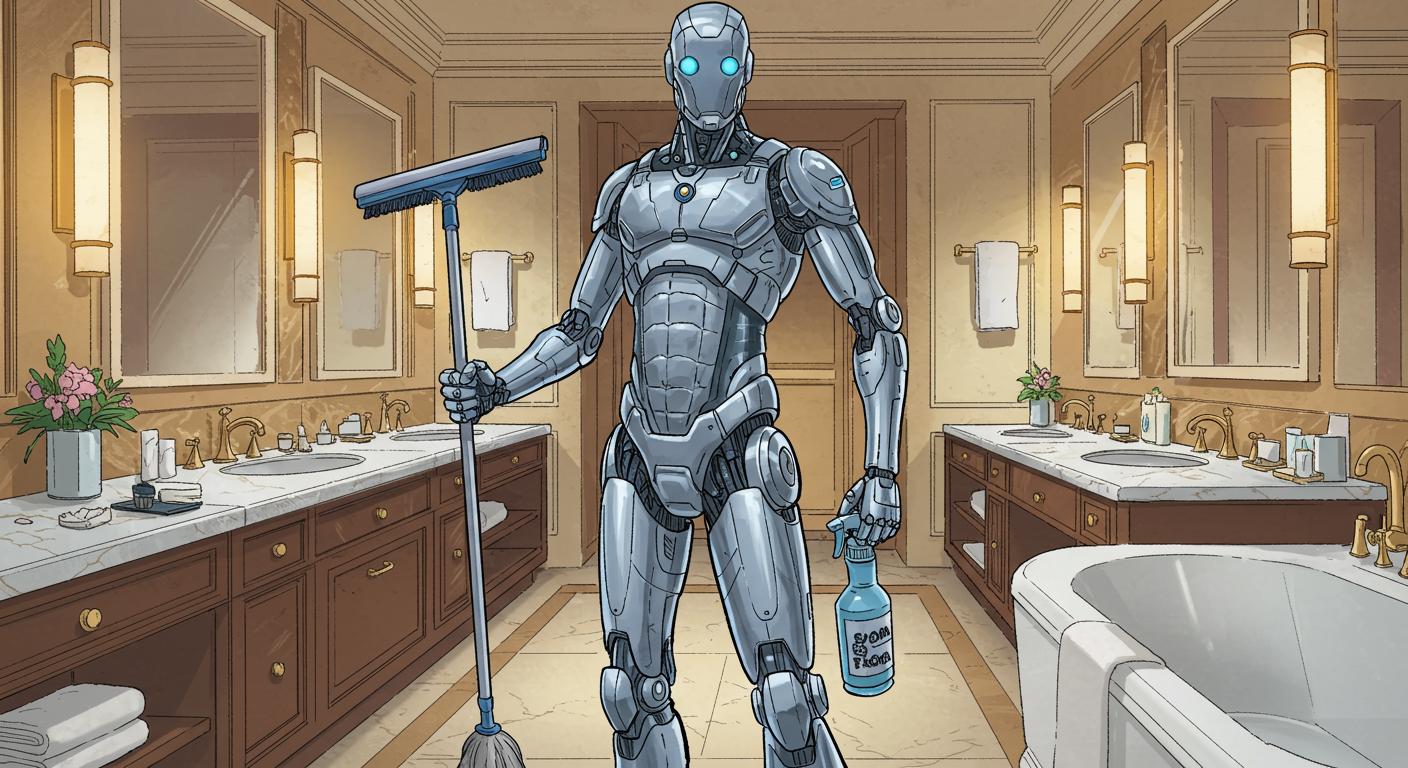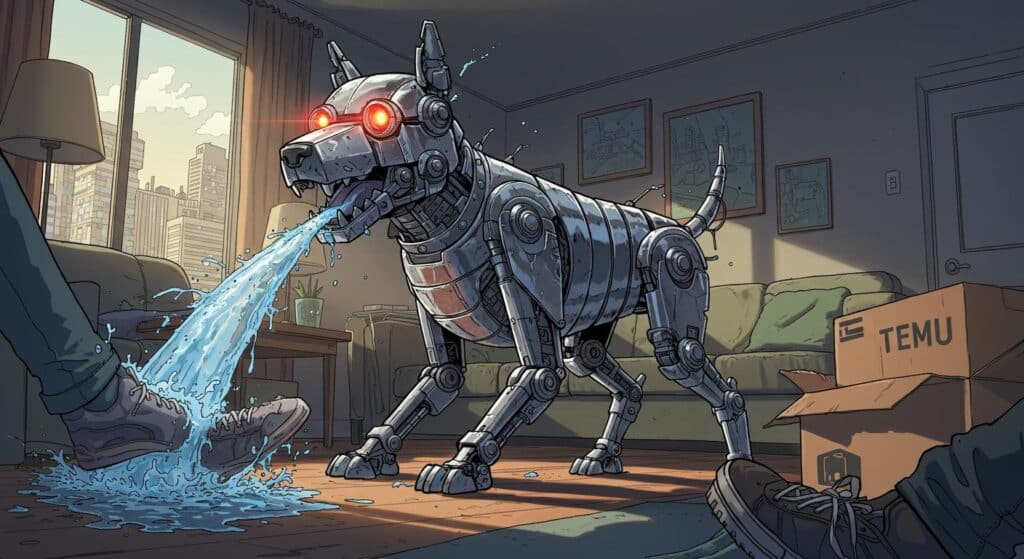If you’ve ever sidestepped a hotel bathroom cleaning cart (or feverishly wished one would materialize at home), you may quietly cheer this recent development out of China. According to a report from Xinhua, Hefei-based Zerith Robotics has unveiled a humanoid, wheeled robot designed to tackle hotel bathrooms—specifically the kinds of tasks humans universally dread: scrubbing toilets and wiping down washbasins.
The Curious Case of the Cleaning Automaton
As noted in the outlet, this robot is capable of cleaning those oft-avoided fixtures with apparent single-mindedness, trundling from the toilet to the washbasin with little complaint (or existential dread, as far as anyone can tell). While the specifics about rubber gloves, brush attachments, or mop-handed accessories are left to the imagination, it’s clear Zerith Robotics intends this not as a novelty, but as an earnest worker for arguably the most thankless of jobs.
Intriguingly, the Xinhua coverage emphasizes that this is just the “beginning”; the company is reportedly eyeing kitchen and restaurant cleaning as next targets. Robotics teams may need to prepare for an even broader range of unglamorous assignments. One wonders: are we approaching a future where robots not only fold your towels, but silently judge your tile grout?
The outlet highlights the robot’s humanoid and wheeled design—blurring the line between appliance and android. Yet, the focus remains utilitarian. No mention of a name, catchphrase, or even an LED-smile; charm, it seems, is optional when you’re disinfecting sinks.
From Labor to Labor-Saving
According to the details provided by Xinhua, these innovations come at a time when labor shortages and hygiene demands in hospitality continue to make headlines in Asia and beyond. Robots, for better or worse, are now setting their sights on the sorts of jobs that define “necessary but unpopular” in any language.
Of course, it raises familiar questions: What happens if an entire industry outsources its least desirable chores to machinery? Will robots become the default scapegoats when the chrome is dull or the floor mysteriously sticky, or will human staff quietly cheer their arrival? No word yet on whether the Zerith model handles the fine art of folding toilet paper into triangles.
As previously reported in the Xinhua article, hints of restaurant and kitchen cleaning bots point to a broader ambition—to automate away the most persistent reminders of the human condition (namely, that dirt happens).
Cleaning Up (the Future)
There’s always a small risk of overhyping early product announcements. In a detail mentioned by Xinhua, the current debut is more a demonstration of capability than a promise of immediate, universal rollout. Still, for anyone engaged in the eternal roommate stand-off over “whose turn it is” to clean the bathroom, it’s not hard to imagine the household negotiations once bathroom-attendant-bots come home. Will “the robot missed a spot” someday enter the canon of domestic complaints?
In the long tradition of inventing tools for humbling tasks, there’s something endearingly straightforward about a company building a robot to do exactly what humans least want. Perhaps it’s inevitable that robots should begin their march into daily life in the tiled, echoey confines of the hotel restroom.
Are we witnessing the next great leap in chore avoidance, or is a whole new genre of robot mishap about to be born—one awkwardly cleaning nozzle at a time? As with so much in modern tech, sometimes the greatest revelations manifest not in boardrooms or laboratories, but quietly, persistently, somewhere near the plumbing.







